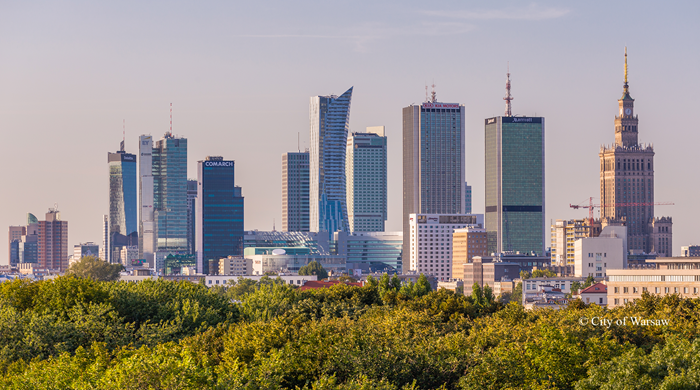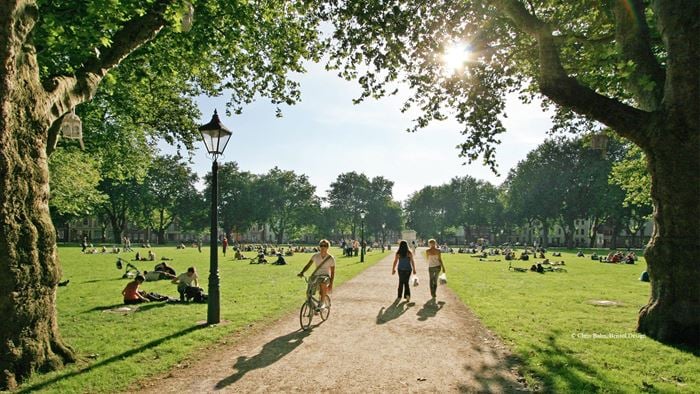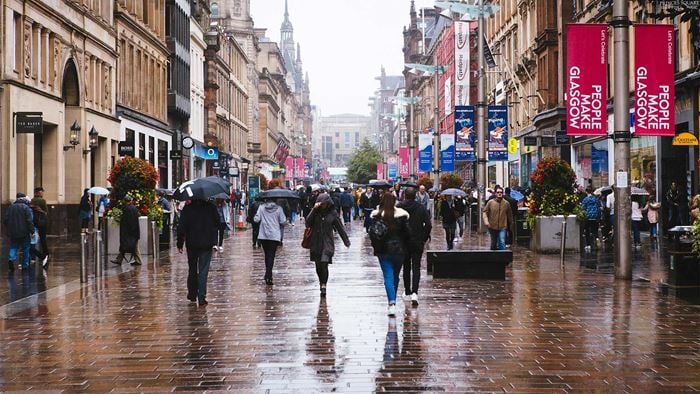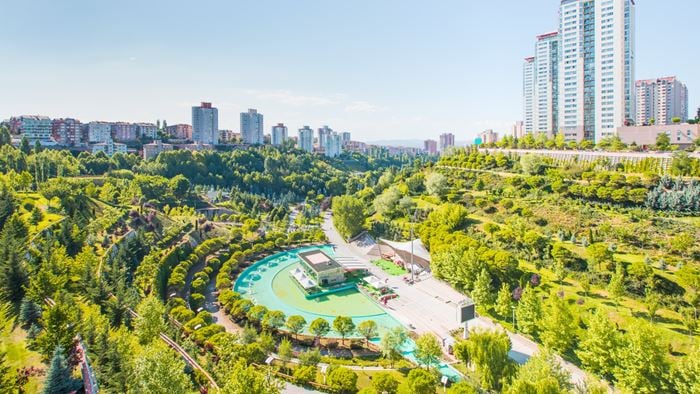Climate change and environmental degradation have put acute pressure on cities. If the world is to achieve net zero greenhouse gas emissions by 2050, then cities, which are the source of at least three quarters of emissions, must take urgent action.
In cities across central and eastern Europe, obsolete urban infrastructure and historical legacies of high energy use and carbon, prevents communities from enhancing their resilience to the impacts of climate change. At the same time, budget constraints and limited capacity mean some cities struggle to access private sector investment to transform their urban infrastructure and become more sustainable.
As part of its Green Cities programme, the European Bank for Reconstruction and Development (EBRD) has established Green City Action Plans (GCAP), designed to identify and shape investable projects, programmes, and policy actions tailored to address the most significant environmental issues facing European cities.
Arup has worked closely with the EBRD, and other international collaborators including PwC for more than five years to develop and deliver GCAPs for six cities: Tirana (Albania), Sofia (Bulgaria), Zenica (Bosnia and Herzegovina), Warsaw and Wałbrzych (Poland), and Split (Croatia), helping ensure a more sustainable and resilient future for the cities and their residents.
We have also supported the development of a policy framework that aims to facilitate implementation of the GCAPs.
Project Summary
6 Green city action plans developed
135+actions proposed
35Green city policy options identified
Sustainable city actions
We evaluate each city’s strengths and weaknesses to develop a roadmap of innovative actions, guidance on investment and delivery models that align with cities’ different needs and existing plans. The plans we create respond to each city’s most pressing environmental stresses, which then grow into investable projects, programmes, and policies.
We work closely with municipal authorities, infrastructure owners, the international donor community and civil society stakeholders, including commercial enterprises such as energy companies, research institutes and NGOs to develop actions and facilitate cross-sectoral engagement while building capacity and consensus so the plans can be successfully embedded.
Some of the resulting actions and policies include wastewater treatment, brownfield land regeneration, green infrastructure, energy efficiency programmes and retrofitting buildings to enable cities to enhance their climate resilience - together helping to improve core aspects of each city’s urban environment.
A policy framework to highlight best practice
A policy framework underpins the development and implementation of the GCAPs. We have produced this policy framework as a complementary study to analyse each city’s characteristics and highlight effective policy measures that cities might use to tackle their environmental, governance and fiscal challenges. The policy options and case studies in this span seven policy areas: transport, land use, energy and buildings, water, waste, governance and finance, and cover a range of actions, reforms and disruptive proposals.
Examples of sector-specific policies include congestion pricing, building energy efficiency certification and labelling, fiscal incentives for machinery and material efficiency in industries, regulation of metering and billing for water use, and performance-based waste management contracting.
Our research outputs fed into EBRD’s Green Policy Tool, a resource that supports policymakers in cities around the world to develop and implement effective, evidence-based green policies. The final report can be read here.
“Arup provides a comprehensive and rigorous analysis that supports cities in identifying and prioritising baseline environmental challenges. Through extensive stakeholder engagement, the Arup team also supports cities to develop individual Green City Action Plans (GCAPs), setting out an ambitious but attainable development vision including both goals and actions to achieve the goals. We are happy to have Arup as one of our GCAP consultants, as they understand the EBRD Green Cities methodology and what we aim to achieve. ” Nigel Jollands Co-Lead, EBRD Green Cities
Tirana, Albania
We are working with EBRD and the Municipality of Tirana (Albania), to develop a design strategy and an economic and environmental assessment for ‘Tirana Orbital Forest’, a vision by Stefano Boeri Architects, which composes of a proposed ring around the urban perimeter of the city with a mix of forests, shrubland, agricultural land and recreational areas. Our approach centres around four key design principles: protect, restore, provide and connect.
The project – a first of its kind for the Bank – will seek to demonstrate that holistic, nature-based solutions can be as effective as grey infrastructure to address environmental challenges and deliver net economic benefits. A key part of our role was to evaluate the feasibility of the forest through quantification of benefits.
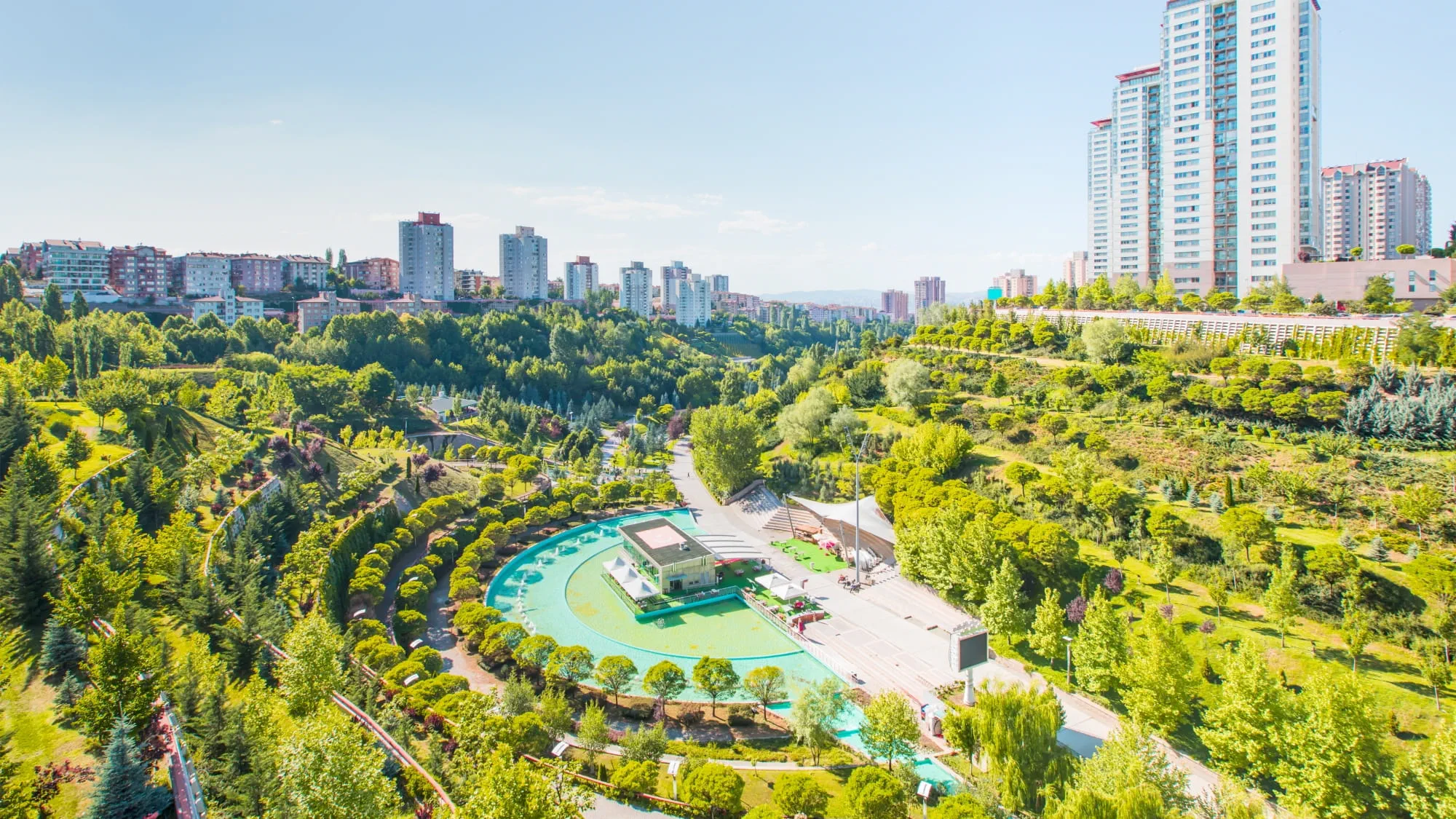 ;
;

